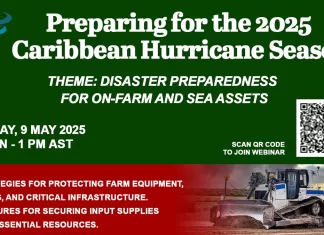St. Kitts-Nevis Prime Minister says his government supports sustained consultative dialogue on key growth issues.
The Government of St. Kitts and Nevis convened a consultative dialogue with economic and social partners yesterday, Tuesday, November 28th, 2017, at the Ocean Terrace Inn in lieu of the customary National Consultation on the Economy, which falls annually in September but was hampered by a more intense than normal Atlantic hurricane season this year.
Financial Secretary in the Government of St. Kitts and Nevis, Mrs. Hilary Hazel said in her opening remarks that, “…we intended earlier in the year during the month of September to do our usual consultation. However, the passage of Hurricanes Irma and Maria did interrupt that schedule, but we think that it is necessary for us to enter into dialogue ahead of the budget and ahead of a new year, which brings much hope and promise for the continued sustainable development of St. Kitts and Nevis.”
Yesterday’s consultative dialogue proved to be highly productive for the purposes of informing stakeholders’ understanding of each other’s expectations and articulating St. Kitts and Nevis’ economic and fiscal position and outlook ahead of the upcoming annual Budget Debate in the National Assembly.
“Traditionally, we have always attempted to bring this [the budget] in December and we are hoping to do so again,” Prime Minister Dr. the Honourable Timothy Harris, Minister of Finance, said yesterday. The Honourable Prime Minister added that his administration presented surplus budgets in 2015 and 2016, with no new taxes, and expects to at least present a balanced budget this year despite the significant public sector damage from the Category 5 hurricanes, Irma and Maria. The damage is put in the region of $150 million (excluding private sector estimates).
The general feeling at the end of yesterday’s dialogue was that it succeeded in providing a forum for Government officials, representatives from civil society, including the Church, as well as the public and private sectors, including representatives from the Chamber of Industry and Commerce, to formulate strategies, share perspectives and make recommendations for the further growth, expansion and diversification of the economy.
During his remarks, Prime Minister Harris referred to matters of national interest that he said would require sustained consultative dialogue. “There are many matters out there [and] we hope moving forward we will be able to develop a structure that would allow for more regular dialogue on a range of issues. Some of them will not disappear overnight, and so we could almost have a checklist of some matters while we refresh the agenda for new and emerging issues,” the Honourable Prime Minister said.
St. Kitts and Nevis’ Prime Minister stated that his Government intends to have ongoing discussions with stakeholders focused on stimulating economic growth and expansion; job creation, in particular increasing higher-paying jobs; protecting vulnerable groups, such as children, the elderly, and people with health conditions; adapting to climate change; advancing public safety and security, and developing and diversifying the agriculture sector, inter alia.
The Honourable Prime Minister also discussed the need for more sustained dialogue on the de-risking threat that confronts the Caribbean region, i.e., the risk of losing correspondent banking relationships.
Prime Minister Harris disclosed that his Government intends to organize a national consultation with a specific focus on the country’s Citizenship by Investment [CBI] Program early next year.
“We have been having discussions with some of the players in that market,” the Honourable Prime Minister said, adding, “Anyone with an interest in it [the CBI industry], we have been engaging and we have had a variety of perspectives on that. Next year, we are hoping to organize a forum in which we could bring the critical stakeholders together and to discuss this in a more comprehensive and formal way.”
The Citizenship by Investment Program is one of the top three major revenue earners for the Federal Government of St. Kitts and Nevis along with the Customs & Excise Department and the Inland Revenue Department.
Prime Minister Harris also informed the stakeholders that St. Kitts and Nevis saw year-over-year financial growth during the past three years.
Notably, St. Kitts and Nevis’ GDP per capita income (the measure of average income per person in a country) grew from US $15,739 in 2014 to US $16,978 in 2016.
“This makes us [have] the highest per capita income in the OECS [Organization of Eastern Caribbean States] and, in fact, we are now the second highest in the region, outdoing all other countries except Bahamas,” the Honourable Prime Minister said, while adding that our Gross Domestic Product (GDP) also grew to $2.5 billion (2016) from $2.2 billion (2014).





